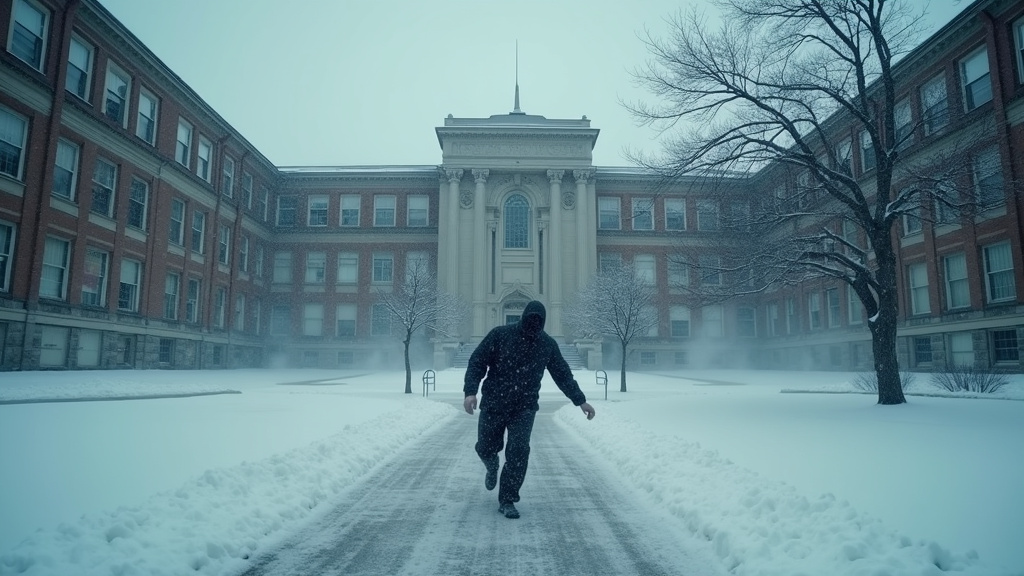In a significant legal development, the U.S. Supreme Court has agreed to hear arguments in January 2026 regarding former President Donald Trump’s unprecedented attempt to remove Federal Reserve Governor Lisa Cook from her post. The court’s decision allows Cook to remain on the central bank’s board for the time being, marking a crucial moment for the Federal Reserve’s independence. Meanwhile, Chicago finds itself at the center of heightened federal immigration enforcement, with large-scale raids, confrontations involving law enforcement and media, and a viral video capturing a dramatic pursuit.
Supreme Court Puts Firing of Fed Governor on Hold
The nation’s highest court announced it will consider the legal battle over Trump’s effort to dismiss Lisa Cook, a governor appointed by President Joe Biden. Trump had cited allegations of mortgage fraud occurring before Cook joined the Federal Reserve as grounds for her removal. However, Cook denies these accusations and has legally challenged the former president’s authority, arguing that the Federal Reserve Act, which permits removal only “for cause,” does not grant the president power to dismiss a governor for pre-appointment conduct.
Lower courts had previously sided with Cook, blocking her termination. The Supreme Court’s decision to hear the case, while allowing her to continue serving, signals a deep examination of the president’s executive power and the structural independence of the Federal Reserve. This legal challenge is a landmark event, as no U.S. president has ever before attempted to fire a sitting Federal Reserve governor, raising concerns about potential political interference with monetary policy. The court’s consideration of the case is expected to have significant implications for the central bank’s autonomy.
Chicago Under Scrutiny Amid Federal Immigration Operations
Coinciding with the high court’s decision, Chicago has become the focal point of intensified federal immigration enforcement. U.S. Immigration and Customs Enforcement (ICE) and other federal agencies have conducted a series of operations, including a large-scale raid in the South Shore neighborhood. This operation, involving hundreds of federal agents and helicopters, resulted in the arrest of at least 37 individuals, with authorities claiming the targets included members of the Tren de Aragua gang and those with criminal histories.
These federal actions, often characterized by their highly visible and sometimes aggressive tactics, have drawn criticism from local officials. Chicago Mayor Brandon Johnson stated the city received “no notice of any enhanced immigration action,” while Governor JB Pritzker questioned the necessity and coordination of the operations, deeming them “not about fighting crime”. The federal push, part of what DHS calls “Operation Midway Blitz,” aims to target undocumented immigrants with criminal records, but activists argue it disproportionately affects immigrant families and communities.
Viral Moments and Media Encounters Mark Enforcement Surge
The heightened federal presence in Chicago has also led to several notable incidents, including a viral video that captured ICE agents in full tactical gear attempting to chase a food delivery worker on a bicycle through downtown. The worker managed to evade the agents, and the clip quickly spread online, sparking widespread mockery and debate about the effectiveness and optics of immigration enforcement tactics.
Furthermore, journalists covering these events have faced their own challenges. In the Chicago suburb of Broadview, two reporters have reported being assaulted with pepper balls by ICE agents while documenting protests and activities outside an immigration facility. One incident involved CBS Chicago reporter Asal Rezaei, whose vehicle was targeted, leading to a criminal investigation by local authorities. These encounters highlight escalating tensions between federal agents, the public, and the press covering immigration enforcement in the city. The backdrop of an ongoing government shutdown may also affect agency operations and transparency, as indicated by a DHS press page being unmanaged due to funding lapses.
Broader Implications and Ongoing Developments
These concurrent events underscore a period of significant legal and operational challenges. The Supreme Court’s pending review of Governor Cook’s tenure will shape the future of the Federal Reserve’s independence from political pressure. Concurrently, the aggressive immigration enforcement in Chicago, marked by large-scale raids and controversial interactions, continues to fuel debate about federal policy, local governance, and civil liberties. The ongoing legal battles and enforcement actions are set to remain major NEWS headlines as the nation navigates these critical issues.













